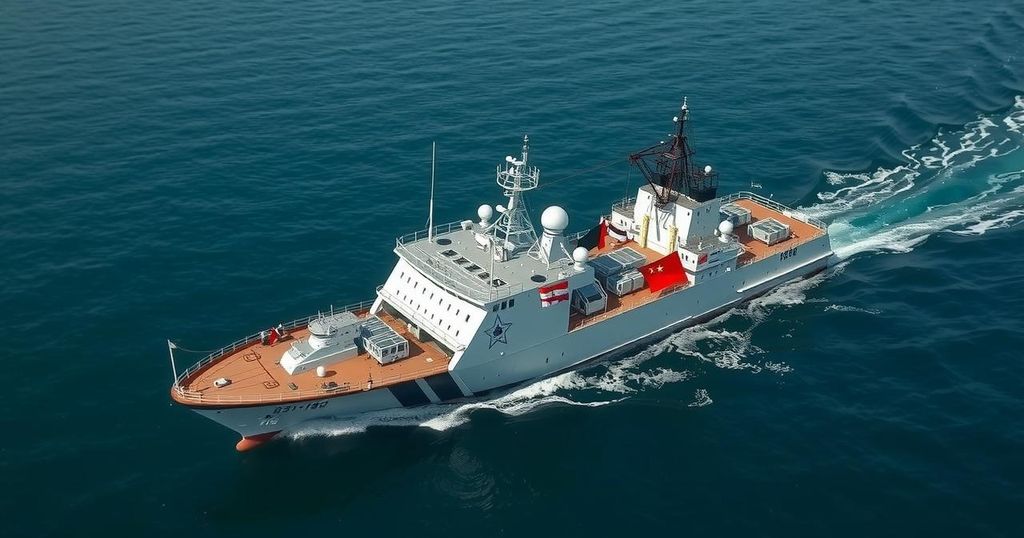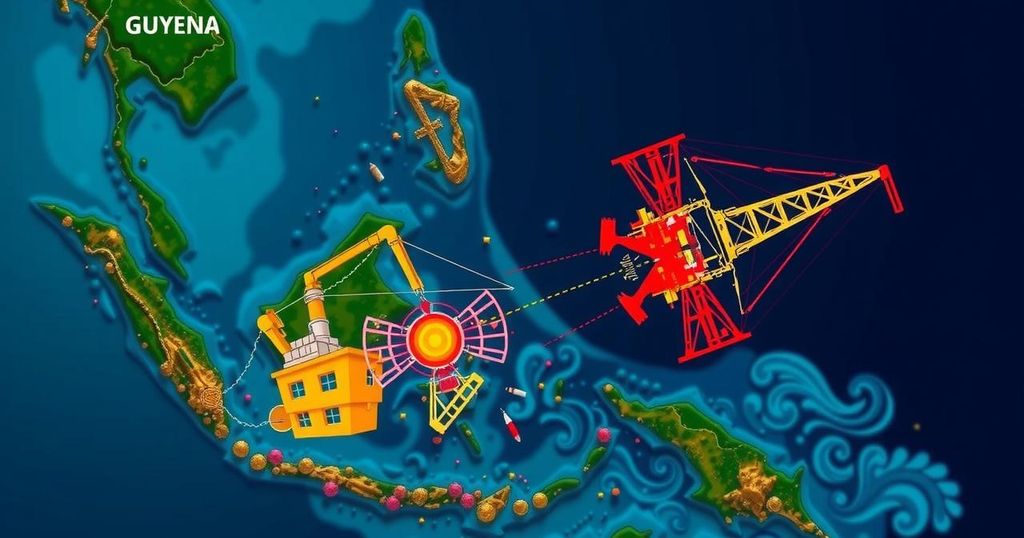Indonesia Expels Chinese Coast Guard Vessel from Disputed South China Sea Waters
Indonesia reported that it expelled a Chinese coast guard vessel from contested waters in the South China Sea on two occasions. The incidents occurred in the North Natuna Sea, where Chinese ships have previously disrupted Indonesian operations, including oil surveys. This development poses a challenge for President Prabowo Subianto’s administration as they seek to safeguard national sovereignty against China’s expansive claims in the region.
On Thursday, Indonesia announced that it had successfully expelled a Chinese coast guard vessel from disputed waters in the South China Sea on two separate occasions in recent days. This incident marks a significant stance taken by a Southeast Asian nation in response to Beijing’s maneuvers in this strategically vital maritime area. The Chinese vessel had reportedly entered waters claimed by Indonesia in the North Natuna Sea, prompting protests from Jakarta. According to Indonesia’s Maritime Security Agency, the Chinese coast guard ship re-entered the contested area on Wednesday. An Indonesian coast guard vessel intercepted the Chinese ship, successfully driving it away from Indonesian jurisdiction. The agency indicated that the vessel initially breached the contested waters on Monday. When approached by Indonesian authorities via radio, the Chinese coast guard responded by asserting that the waters were under Beijing’s jurisdiction. This vessel was said to have interfered with a survey being conducted by Indonesia’s state-owned oil company, Pertamina. There are substantial unexploited reserves of oil and gas believed to lie beneath the seabed of the South China Sea, although estimates of their quantity differ widely. This incident serves as an early test for Indonesia’s newly inaugurated President Prabowo Subianto, who has committed to enhancing the defense of the country’s territorial integrity. In response to Chinese incursions in the past, Indonesia had previously deployed fighter jets and warships to patrol the waters around the Natuna Islands in 2020. Indonesia and China, while being key economic partners, are currently at odds over illegal fishing activities that are reportedly costing Indonesia billions of dollars each year. China claims nearly the entire South China Sea despite a ruling from an international tribunal deeming such claims baseless. Recently, China has been increasing its military and coast guard presence in the area, aiming to assert control over contested regions, including efforts to displace Filipino vessels from strategically important reefs. The tensions extend beyond the South China Sea, with China applying pressure regarding a disputed island chain controlled by Japan in the East China Sea, causing apprehension in Tokyo and among its allies.
The South China Sea is a crucial maritime area that is rich in resources, particularly oil and gas. This region has been the focal point of territorial disputes involving several Southeast Asian nations and China, which claims almost the entirety of the sea. Indonesia’s assertion of its rights over parts of the North Natuna Sea, a segment of the South China Sea, comes amidst ongoing regional tensions. The Chinese government has faced criticism for its aggressive maneuvers in disputed waters and has ignored international rulings that counter its territorial claims. This incident reflects growing concerns over illegal fishing and foreign incursions in Indonesian waters, which have significant implications for the nation’s economy and security.
Indonesia’s recent actions to expel the Chinese coast guard vessel highlight the country’s commitment to asserting its territorial rights in the South China Sea amid rising tensions with Beijing. As Indonesia seeks to safeguard its economic interests and respond to illegal fishing practices, the incidents represent not only a challenge for President Prabowo Subianto’s administration but also underscore the complex geopolitical dynamics in the region. The ongoing confrontations signify that Indonesia is willing to take decisive action to defend its maritime sovereignty against external pressures.
Original Source: www.arabnews.com







Post Comment